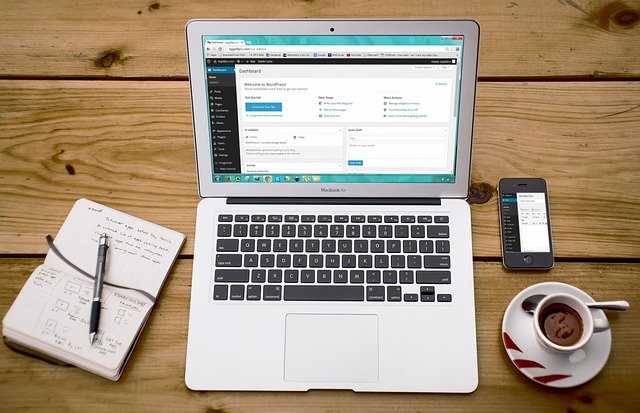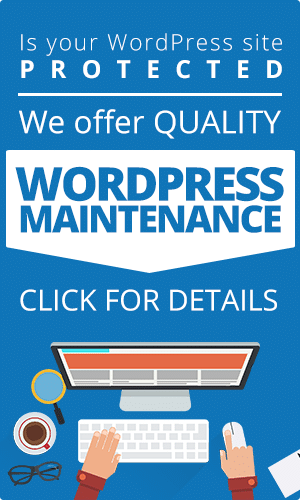For decades, the commerce industry has evolved in ways you can’t imagine. However, it was always defined with a simple formula, and that was to secure a considerable profit and attract more customers than your competitors. Naturally, lower costs will get you more profits.
However, in the 21st century, things have changed.
It isn’t a requirement to have a physical store, and nowadays, a physical store might be more of a liability than an asset. Even if you have a physical store, you can manage it without any inventory.
Whatever you do, you have to go with the trend, and in this article, we will show you how you can build an online store in 2022.
Let’s dive right in!
How to build an online store this year
Set up a SWOT analysis
SWOT stands for Strengths, Weaknesses, Opportunities, and Threats. It’s an excellent way of assessing different products and niche ideas. For example, let’s say you want to start a new e-commerce business; here are a few things you can write down:
- Strengths: Interest growth, increased customer demand, personal knowledge in your industry, and more.
- Weaknesses: Shipping restrictions, challenges you may face during the border crossing, and more.
- Opportunities: Ability to establish partnerships with other online shops.
- Threats: Regulatory issues whenever you are selling cross-country, failing to possess legitimate test certifications, and more.
Use order form templates
Order forms can be used as a method to sell your products and services online. You can download ready-made templates to help you save time and not have to start from scratch. There are a variety of order forms you can use, such as:
- Clothing order forms
- Costume order forms
- Screenprint
- Construction change
- Order cancellations and more
Define your target audience
You have no direction if you don’t know who your target audience is, especially with new online businesses. Knowing your audience is vital for success. It helps you find new customers much easier and attracts interested buyers to your site.
Just think about it, if you are a Samsung fan, how would you feel if someone tried to sell you an Apple product? Moreover, here are some important factors to look at when identifying your target audience:
- Location: Geographic locations, segmented groups
- Demographics: Age, gender, education, income
- Interests: Personality, lifestyle, buying behaviors
Use a website builder
E-commerce website builders are online software that allows you to build your own store from scratch without needing technical skills, coding knowledge, and a bunch of computer screens to do the work for you. In this case, the only thing you need is to choose a good website builder and have a business idea to carry out. But, above all, you need to choose a proper website builder.
There are many choices available on the internet. However, not all of them are quality, and let’s be honest, if you’re going to set up an online store, make it right from the beginning. With many options to choose from, we want to make it easy for you and show you which website builders are recommended for building an online store:
- Wix: You’ve heard of Wix before, but what you most likely haven’t heard before is how good the site is for building an online store. Wix is considered a top choice for building an online store and received a rating of 4.7/5 from users. Most of its positive ratings come from its website features, sales features, excellent prices, and ease of use. Moreover, you can try Wix for free and see if it’s the right website builder for you!
- Shopify: Another common alternative for building an online website is Shopify. In the e-commerce industry, you have most likely heard of Shopify. E-commerce website builders are easy to use, and Shopify is well-known for being popular due to its ease of use. Undoubtedly, it has one of the best sales features and a relatively high customer score. In addition, Shopify allows you to use the platform for two weeks for free to get the hang of the platform. Furthermore, plenty of subscription plans are available, specially designed for online selling.
- WordPress: Nearly half of the websites that exist in the world are built through WordPress. WordPress can be convenient for creating an excellent online professional store and has many customizable options available with super-cheap plans. WordPress is very beginner-friendly and most of its features are super easy to navigate through as it requires zero knowledge of any coding language to get your website up and running i.e. every widget is pre-customized and all you have to do is choose whether you want it displayed and where.
Now, the major question might be which online site builder you should choose for a small store and if your store is larger?
Best choice for small stores
If you’re going to be focused on a small online store, the best option to go with is Wix.
Wix’s plan starts from $23 to $49 per month with more than 500 themes and a range of user-friendly features. Wix is one of the oldest website builders out there, meaning businesses have been trusting it for a long time, so why shouldn’t you?
Best choice for large stores
Alternatively, we have the best options for large stores: Shopify and WordPress. Shopify has plans ranging from $29 to $299 per month with over 50 themes, email marketing, powerful inventory management, and a 2.6-2.9% commission.
WordPress has monthly prices ranging from $30 to $300 per month. With WordPress, you can build an online store just the way you like with many ready-made templates available. WordPress is your all-in-one platform where you don’t have to worry about inserting codes from third parties (not that you can’t, but you won’t be needing them in the first place), and everything can be arranged with a few clicks.
What should you look into when choosing an online website builder?
Every business has a different purpose, but in order to see what best fits your business, here are a few things you should pay special attention to before choosing your online website builder:
- Usability: Above all, your online website builder should be easy to use, especially if you lack any tech knowledge. Platforms that are easy to use will usually have a drag and drop interface that allows you to build your online store quickly. Schedule a free trial to find out fully.
- Customer support: Look for a platform that is supportive at all times. For example, Shopify offers continuous support and is available 24/7 through email, phone, live chat, and more. Furthermore, they provide help in more than 15 languages!
- Easy to buy checkout: A streamlined checkout is essential to making sales. It’s important to find a website builder that allows you to make online purchases easy for shoppers. For example, Shopify streamlines an easy-to-buy online checkout, which increases checkout speeds by up to four times. An excellent online website builder will have plug-ins you can use and many payment gateways for different payment methods and currencies.
- Web hosting: A web host collects and stores important information and content from your online store and stores it in a server database. Without web hosting, people can’t access your online store. However, many website builder software has built-in web hosting, while other software requests you to use a third-party solution.
Whenever you choose your website builder, don’t only think short-term. Identify if the platform offers solutions in your favor for the long term. Other than that, it’s always an excellent idea to start a free trial and find out what the website builder has to offer.
Identify the industry gaps
At the first look, you may think that all profitable niches are taken in the online world, but this isn’t entirely true. You can identify consumer demands within popular product categories with adequately targeted research.
For example, the clothing industry is in demand. However, there is a tremendous amount of competition in the market, and to better find any gaps in the market, here’s what you can do:
- Google Trends: This allows you to input search terms that show you if they’re trending or not. Moreover, what’s great about Google Trends is that it also allows you to see which terms are trending in a specific country.
- Social Media: Analyze concerns in all social media channels. This will allow you to think of which industry needs its issues to be solved.
- Find the best sellers on eBay and Amazon: Read reviews and see what shoppers complain about the most. You can do the same thing but better than your competitors, and when you do this, customers will be running toward your online store.
Choose a business model
As part of your research, to succeed in the online world, you need to choose the type of business model you will use. Here are a few popular business models for online stores:
- B2B: Do you see your online store selling to retailers, other business buyers, and wholesales?
- B2C: Do you see yourself selling directly to customers?
- Dropshipping: Do you hate to hold inventory and want to ship the order to your customers directly?
- Online marketplaces: Do you want to sell on popular online marketplaces like eBay, Etsy, or Amazon?
Wrapping it up: How To Build an Online Store in 2022
That’s all for this article. These were our top tips on how you can build an online store in 2022. The internet has been around for a while now, and to say the least, the amount of competition online is insane. So, if you fail to stand out, there’ll be many issues you will have to face.
Above all, you can’t start an online business without any money, so you need to research before investing even a penny in your online business. Research promotes clarity and gives you ideas to make you unique!
Need help building your online store? Take a look at our WordPress web design services and get in touch. We’d be honored to discuss your needs!







